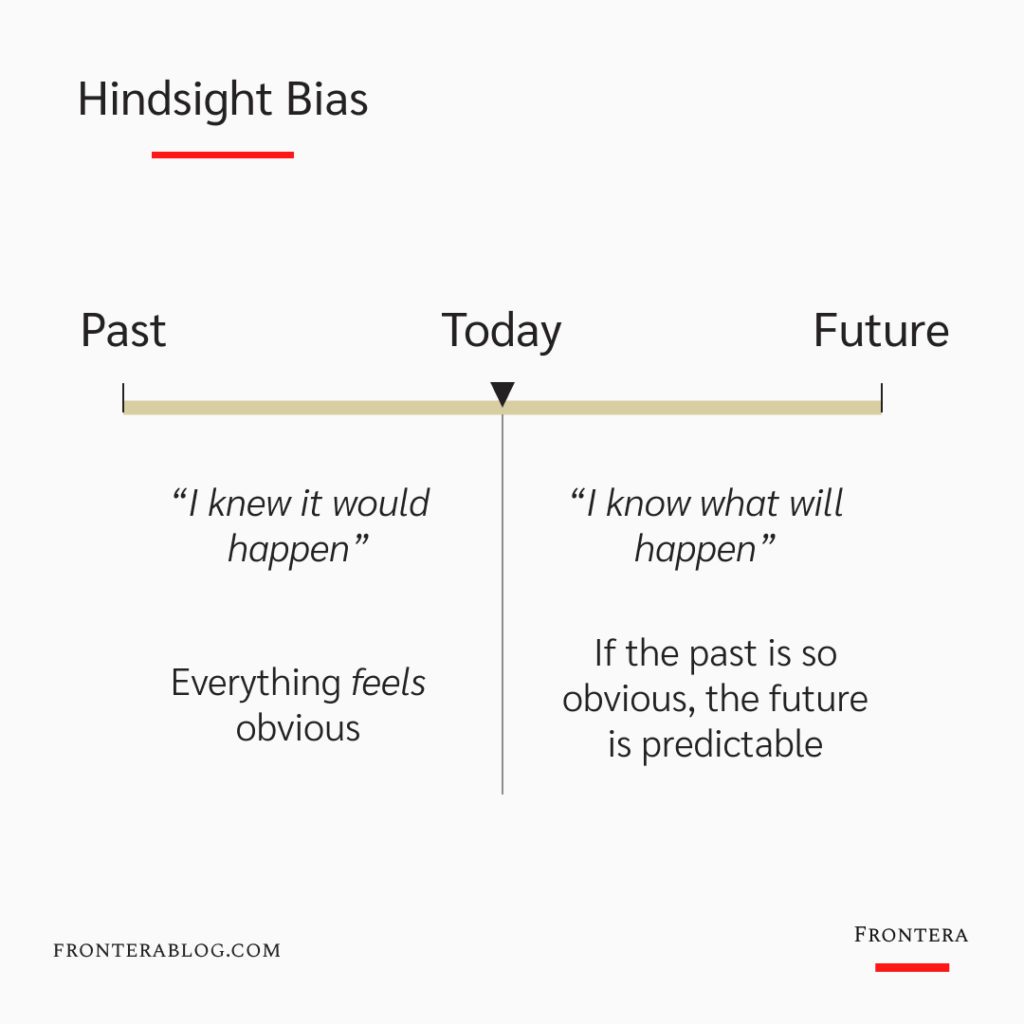Hindsight bias is a fallacy where people feel they knew how things would turn out after the events occurred.
Take yourself back to December 2019. A new decade is about to start.
Who was expecting a pandemic that’d keep us under lockdown and change how we live for years?
Who was expecting a war in Europe resembling the days of the Second World War?
But these did happen just in 27 months since December 2019.
Looking back from today, everything feels obvious.
The world was too connected; a pandemic was inevitable. Even Bill Gates had warned us about it. Tensions in Eastern Europe were so high in the last couple of years; everybody knew that Putin would invade Ukraine.
After we know how things turned out, our minds ignore all other possibilities and explain the past as it was inevitable.
It’s called Hindsight Bias. And it’s easy to notice it in your life.
You hear these sentences that represent three levels1 of Hindsight Bias quite often for stock market crashes, match results, or business decisions:
- I said it would happen (Memory Distortion)
- It had to happen (Inevitability)
- I knew it would happen (Predictability)
Hindsight Bias: The Past and The Future
The danger with Hindsight Bias is its impact on your future decisions. It creates false confidence.
After all, if it’s so easy to explain all past events, if we knew it all, we can also predict the future. Right?
That’s how executives take uncalculated risks or stick to a strategy that worked once. That’s how people make the wrong investment decisions and don’t learn from their mistakes.

How to avoid hindsight bias
1. Track your decisions and reasoning
One way to avoid Hindsight Bias is to keep track of your decisions and reasoning at that time.
So if you made a significant career decision, you can look back, see your predictions about how things will turn out, and judge if it was the right decision.
2. Embrace the unpredictability
Another way is to be aware of the unpredictability of the future.
Nobody knows what will happen. As nobody knew how this decade would start back in December 2019.
That’s why life is full of surprises — sometimes negative, sometimes positive.
So whenever you find yourself making predictions about the future, remember:
Things that have never happened before happen all the time.
Morgan Housel
Enjoyed this article?
Then you’ll love the How Brands Win Newsletter.
Get the “7 Positioning Sins That Cost B2B Brands Millions” guide when you join. It’s free.
Footnotes:
1 The three levels of hindsight bias, proposed by Roese & Vohs (2012) in their paper that was published by the Association for Psychological Science.
